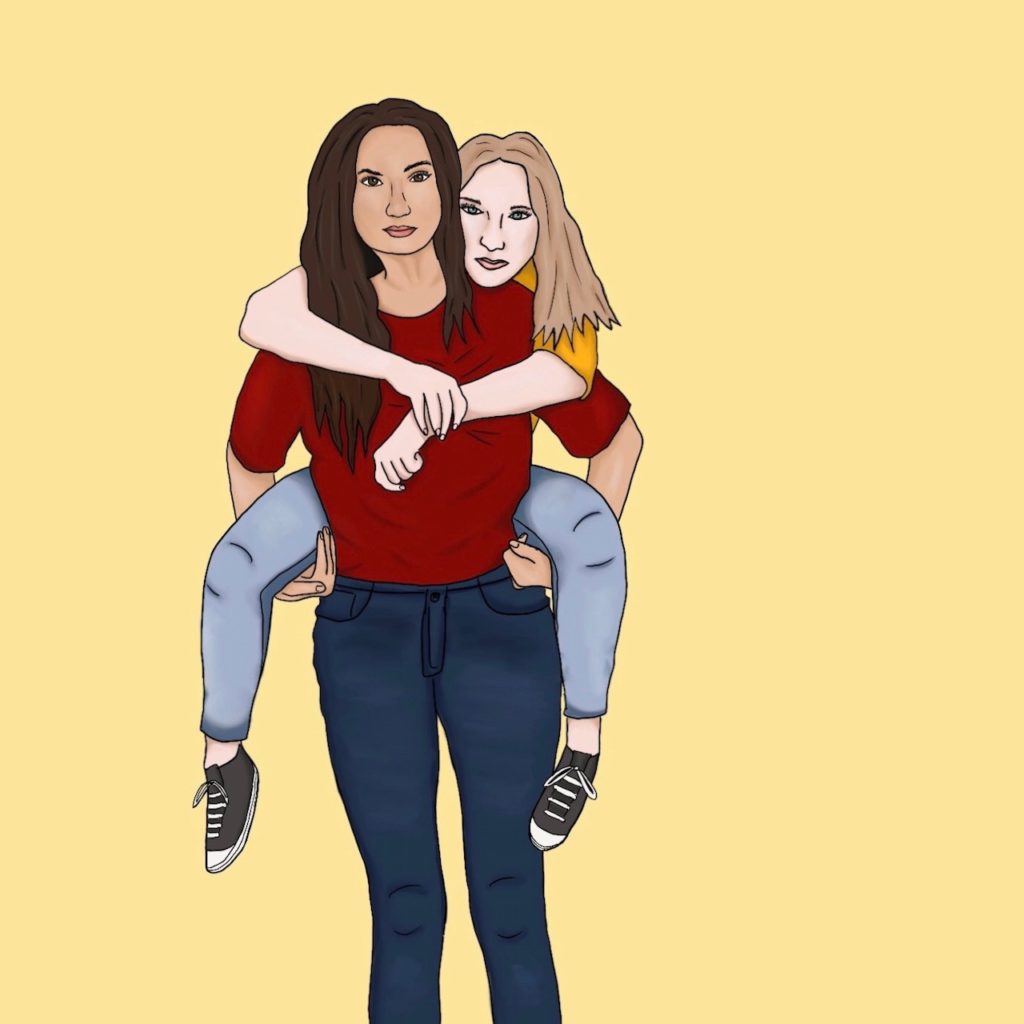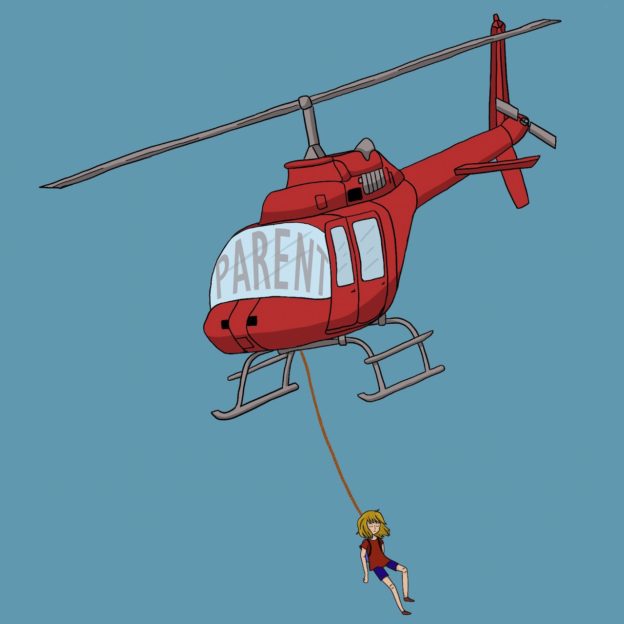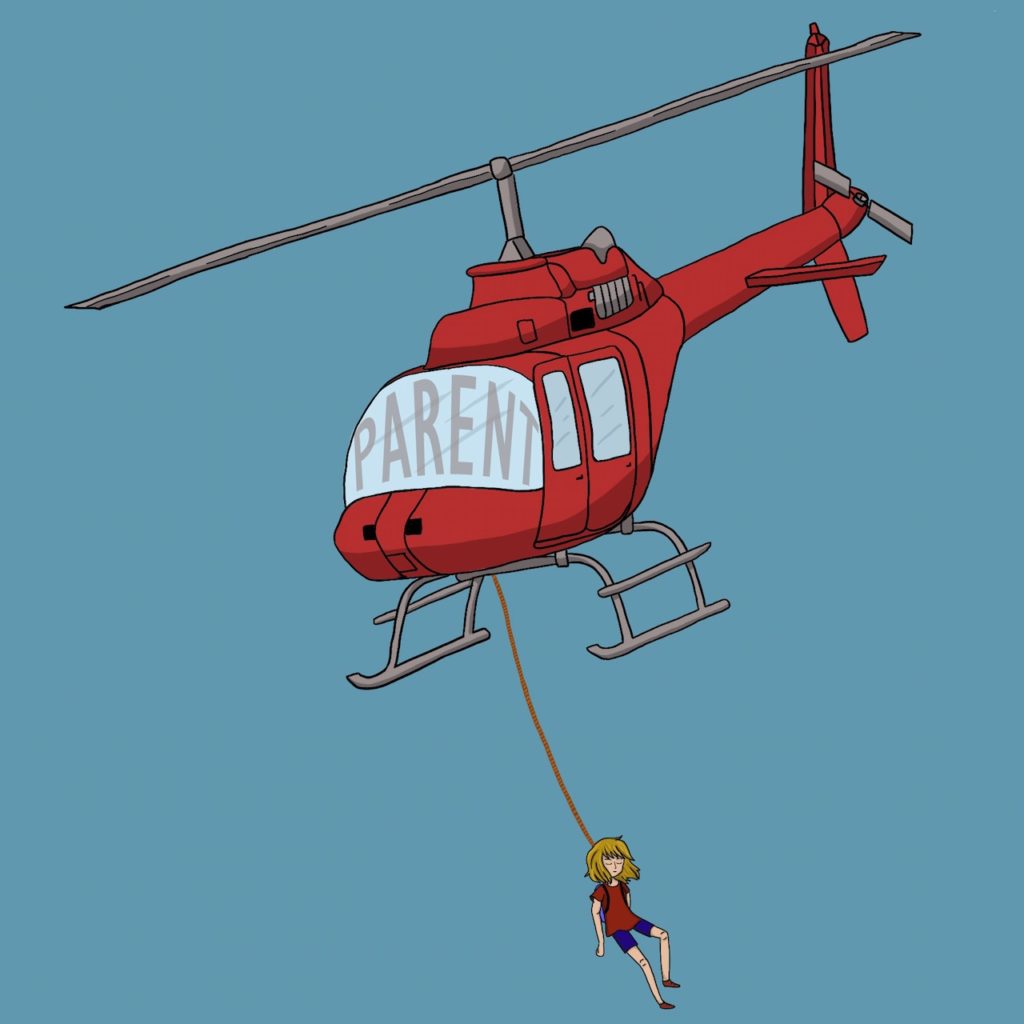
The very first tip in my book, Parenting with Gumption and Grit, says this: Don’t go it alone. It’s #1 for a reason. In making an argument for the interconnectedness of all people, English Poet John Donne penned these famous words in a 1623 essay, “No man is an island, entire of itself.” As much as I might sometime like to retreat from the world and everyone in it, I am keenly aware that I simply cannot do life alone. Well, not successfully anyway.
I have never been one to parent that way either.
My husband and I have raised three daughters. It is probably no coincidence, but nevertheless, it is rather funny as I contemplate just how many mothers of my daughters’ best friends have been my best friend. Throughout the years, these dynamic duos, have included Kristine and Tanna; Susan and Abi; Wendy and Alysse, Vanya and Kylie, Shari and Casadi, and Lisa and Emma. Just to name a few. We were a military family, so we moved around a few times as the girls were growing up. It was always hard when we moved, but that was only due to the close relationships we had nurtured and cherished in the place we left behind. It was the same for me and the girls. But as hard as it was to leave, each new arrival found us enveloped once again by moms and daughters ready to take us into the fold. So yeah, as soon as we made landfall, we made friends. And I mean the true blue, steadfast, and resolute kind.
How did that happen?
Well, the truth is you have to be willing to take risks. It requires vulnerability, transparency, and even personal disclosure. And as if that isn’t risky enough, it requires you to actively listen when the other person is being transparent and vulnerable. But this kind of sharing and depth doesn’t just happen the first day you meet someone. These kinds of forever friends are built on a foundation of trust that evolves out of sharing your lives together. For me and my mom friends that meant shared carpools, listing one another as emergency contact persons, birthday parties, graduations, and recently, even weddings! But it also meant late night telephone calls, semi-emergency coffee meetings, and crying on each other’s shoulder. I have sent and received my share of casseroles, hosted more than a few sleepovers, and kept kids when my friend’s husband was on a long deployment, and she just needed a break. Life is just easier when you have others to lean on. It’s also a lot more fun.
This world inflicts deeper wounds than what our individual skill set alone can manage.
We were never meant to shoulder our personal burdens unassisted. That may be a new concept to some of you, but it is true. I cannot imagine navigating this parenting venture solo- 1 without my husband or 2 without my steadfast friends and fellow moms. Who knows better than you how it feels to have your tween, teen, or young adult child break your heart? Another mom that’s who. Who knows better than you how exhausted you are from sleepless nights with a nocturnal infant? Another mom that’s who. Homework, significant others, discipline issues, joy, and heartbreak. I’ve navigated all of that and more with other mamas, who like me sometimes just need a hand up from someone who understands!
Just a few days ago, my middle daughter Halle flew to Florida between college semesters to visit her precious friend Alysse whom she met over a decade ago when both of their families were living overseas. I know the two of them have weathered many storms together including quarrels with their respective parents. A few days following their visit, I was texting with Alysse’s mom Wendy, sharing prayer requests for both girls. Next week, my friend Kristine is coming for a visit. Her daughter, one of Shelby’s best friends for over 20 years, was married this year. The funny thing about that is, I was there with her in the midst of her struggle with infertility before she became pregnant with Tanna, over 22 years ago. And now here we are. So many years and so many celebrations, calamities, and adventures later, we are still standing. A few grey hairs for sure. But still stronger than ever.
I have navigated some tough, and some joyful seasons with some pretty great moms. And guess what? We are still, all in this together. Some of them live minutes away from me. Some of them, hours. But all of them are an intricate part of my story. Our kids drew us together. Now nothing can draw us apart. Neither time or distance.
We certainly don’t expect a life free of obstacles or pain, right? Of course not. Indeed, we know that is not true. Especially in parenting. Psalm 23; 2 Corinthians 1:3-7; John 14; and Romans 8:26, just to name a few, each of those verses are rife with both trouble and assurance. In each of them we see difficulty surrounded with help. Pain surrounded with healing. Hardship surrounded with relief. Be the one who surrounds another mom with help, healing, and relief. And, be the one who receives that from another mom. She’s the best best friend you’ll ever have. Don’t. Go. It. Alone. That’s an awful lonely island to inhabit.

